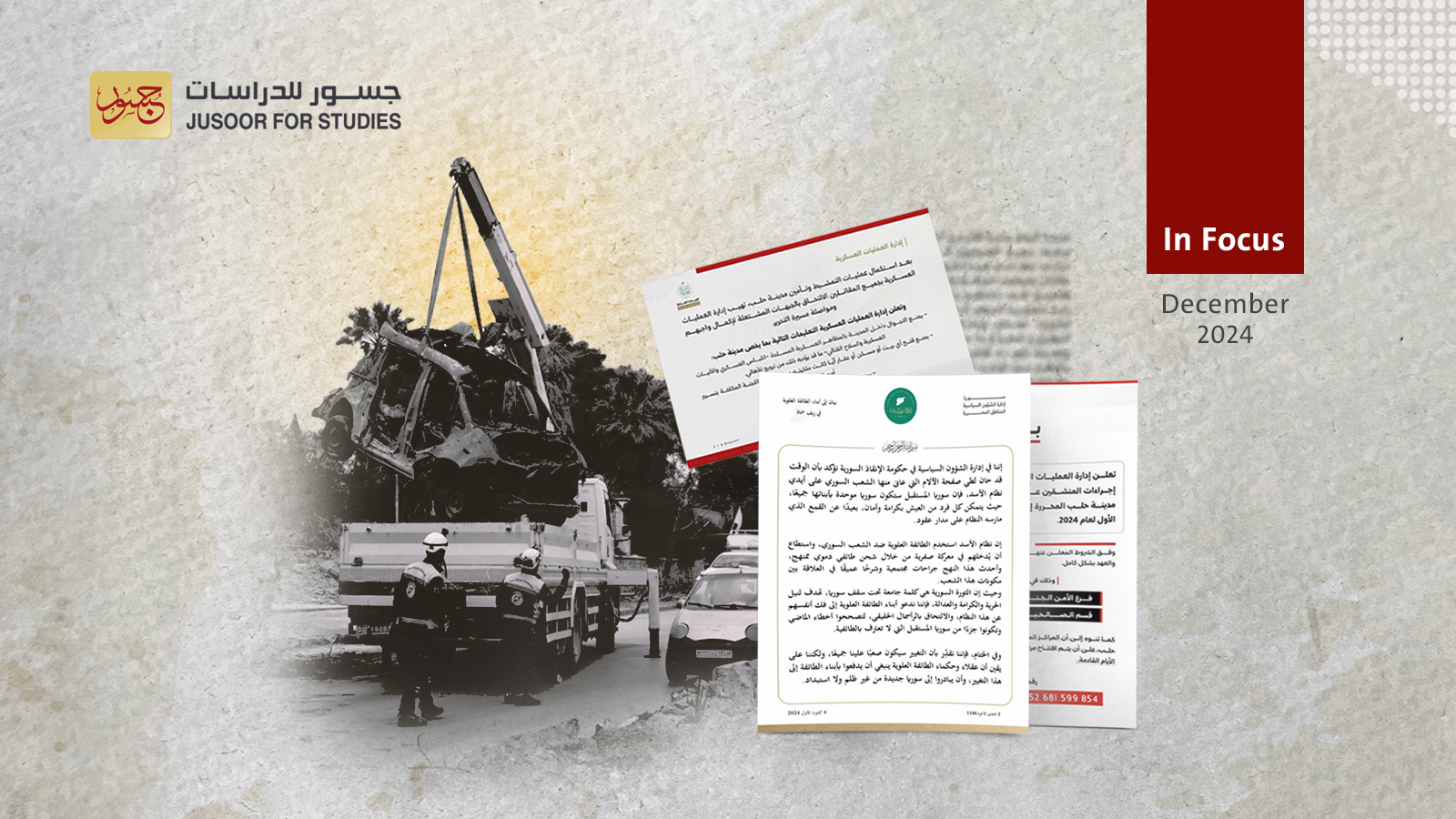How the Syrian Opposition Finally Toppled the Assad Dynasty
In the battle that ended the Assad regime after more than five decades in power and 13 years of war, Syrian opposition forces deployed new tactics, both in terms of military operations and psychological warfare. Opposition messaging proved particularly effective in demoralizing regime forces and prompting both the military and the regime’s social base to abandon it.
Starting on November 27, the opposition swept from Idlib to Damascus in a matter of days, forcing president Bashar al-Assad to flee to exile in Russia. The lightning operation, which suddenly ignited a “frozen” conflict, relied heavily on the following tactics:
· Guaranteeing the safety of defecting regime soldiers and officers. Opposition forces gave out “temporary protection” cards pledging that their holders would face no reprisals, at least until political stability is restored and a process of transitional justice launched. Opposition fighters also adhered to a disciplined military code of conduct, which prohibited retribution against captives and regulated their treatment, demonstrating a level of discipline unprecedented since the start of the war.
· Ensuring that civilians were not targeted during offensive operations. This was in stark contrast to the image the Syrian regime had promoted among its forces and the population alike, which portrayed opposition factions as barbaric terrorists. The opposition’s policy helped precipitate defections from the regime and exposed its sectarian policies vis-à-vis both its military and civilian constituencies.
· Ensuring the continued provision of civilian and humanitarian services, through measures aimed at preventing public chaos and impressing on the population that stability could be quickly restored. This helped prevent mass waves of displacement or emigration, also reassuring countries in the region and Europe.
· Refraining from attacking state institutions and infrastructure, whether military or civilian, and allowing their staff to withdraw without fear of being captured or killed. This sent a message to Syrians and world powers that the opposition is capable of replacing the Syrian regime in managing state institutions.
· Guaranteeing the security of minorities. The armed opposition delivered reassurances to Syria’s Christian, Ismaili, Shiite, Alawite and Druze communities, taking measures to ensure the security of their areas and their personal safety, as well as promising that they will enjoy rights equal to those of other Syrians after the fall of the regime.
· Ensuring the security and the rights of the Syrian Kurdish population, as a component of the Syrian people, as well as ensuring the safety of its property and protection of Kurdish-majority areas during the fighting. Negotiations were also held to resolve the issue of Kurdish fighters in Aleppo, granting them the right to stay there, or giving them safe passage to Raqqa.
· Refraining from attacking regime allies. The opposition shifted its rhetoric towards Russia and Iraq, offering them political guarantees that it would protect their interests. Its rhetoric towards Iran was consistent with the regional and Western approach, demanding an end to Iran-backed militias and influence on Syrian territory.
In summary, the battle that finally toppled Bashar al-Assad after 13 years of revolution was won through psychological warfare against the Syrian regime, which undermined the support of its military and civilian base and led to an unprecedented collapse of its presence in Aleppo, Idlib, and Hama.
Opposition forces used a mix of deterrence and attacks on the morale of the regime and its support base, using propaganda, rhetoric, administrative and military measures. The latter included the use of cutting-edge weaponry such as drones, along with military plans with a level of professionalism equivalent to that of organized armies, something the regime lacked. The armed opposition thus offered an alternative model of governance.








